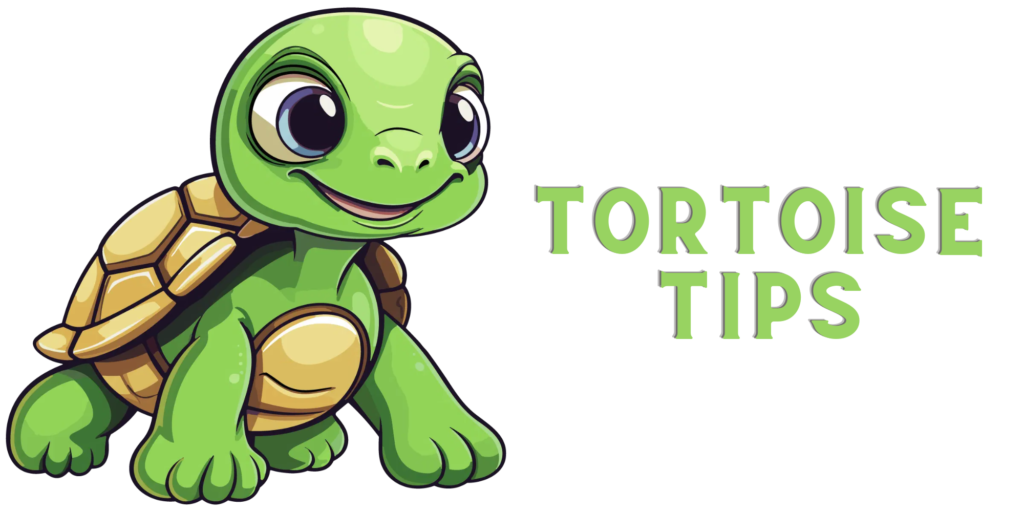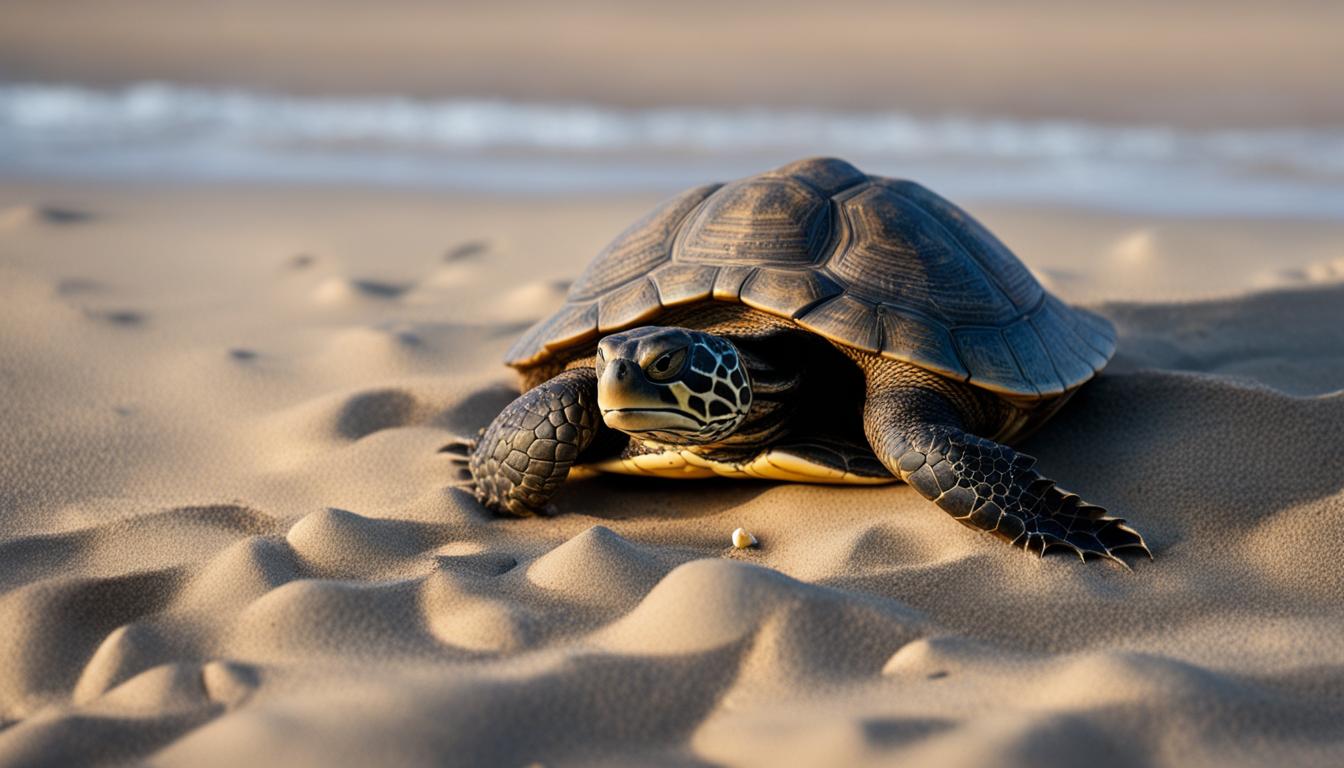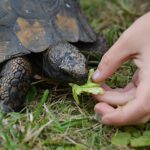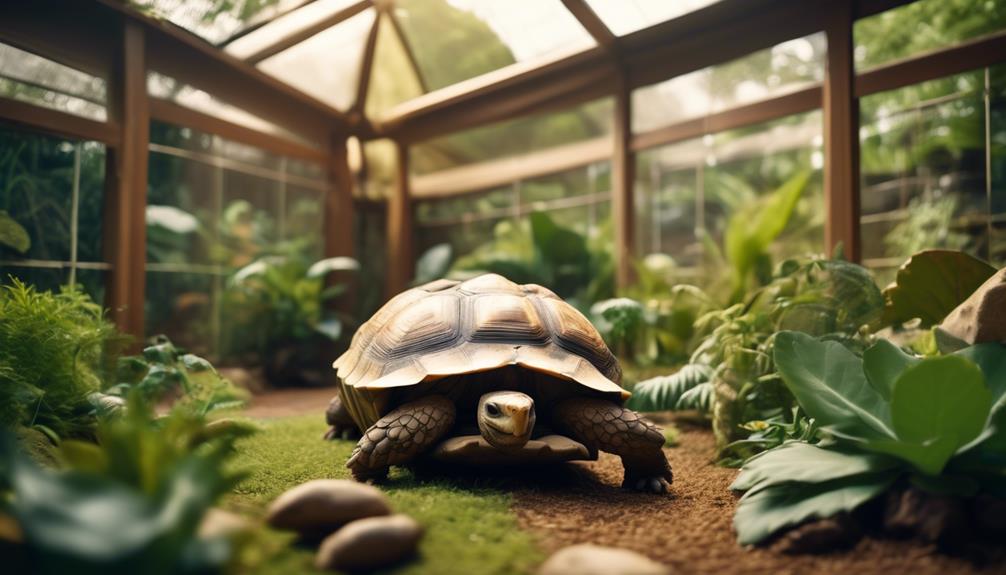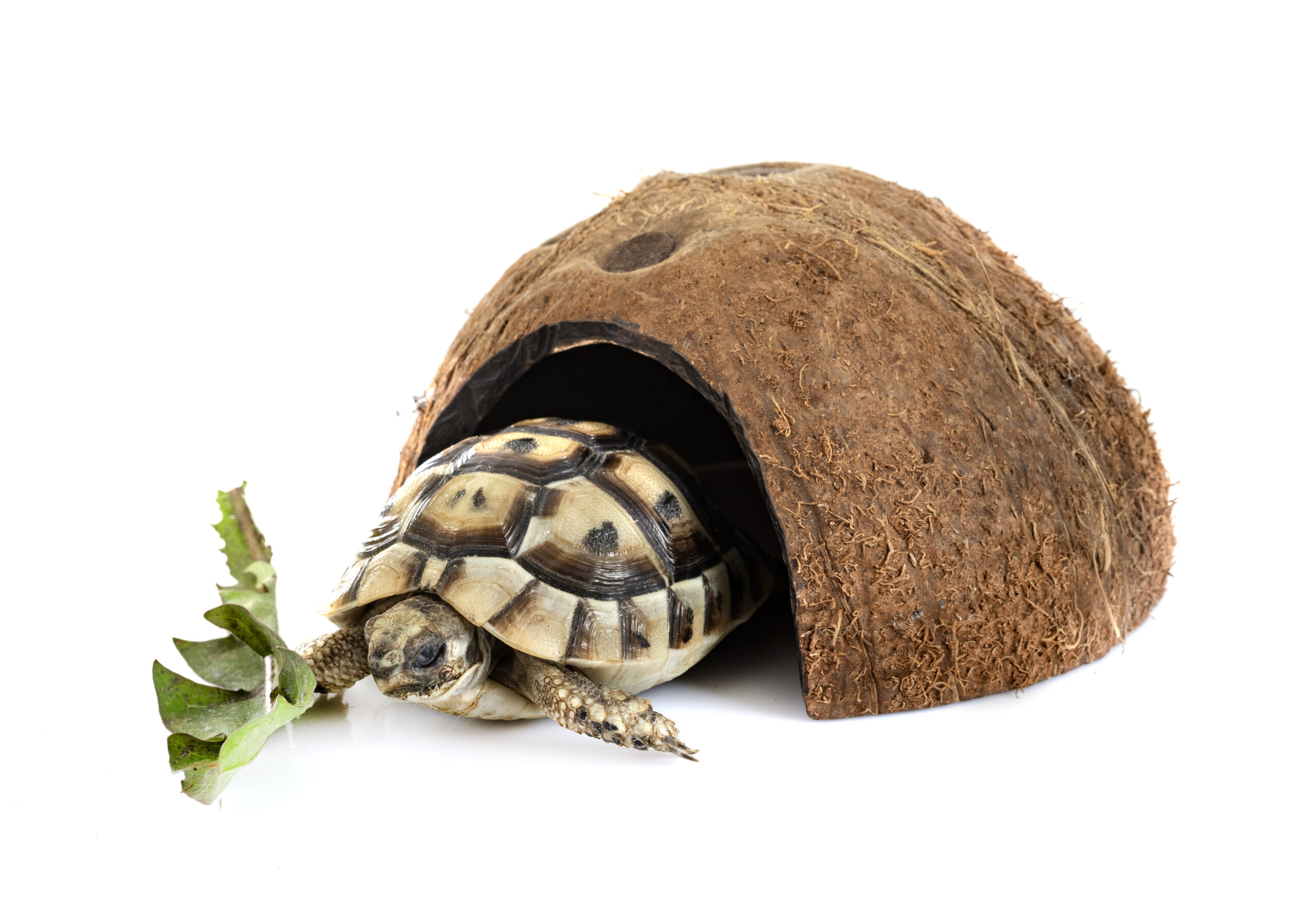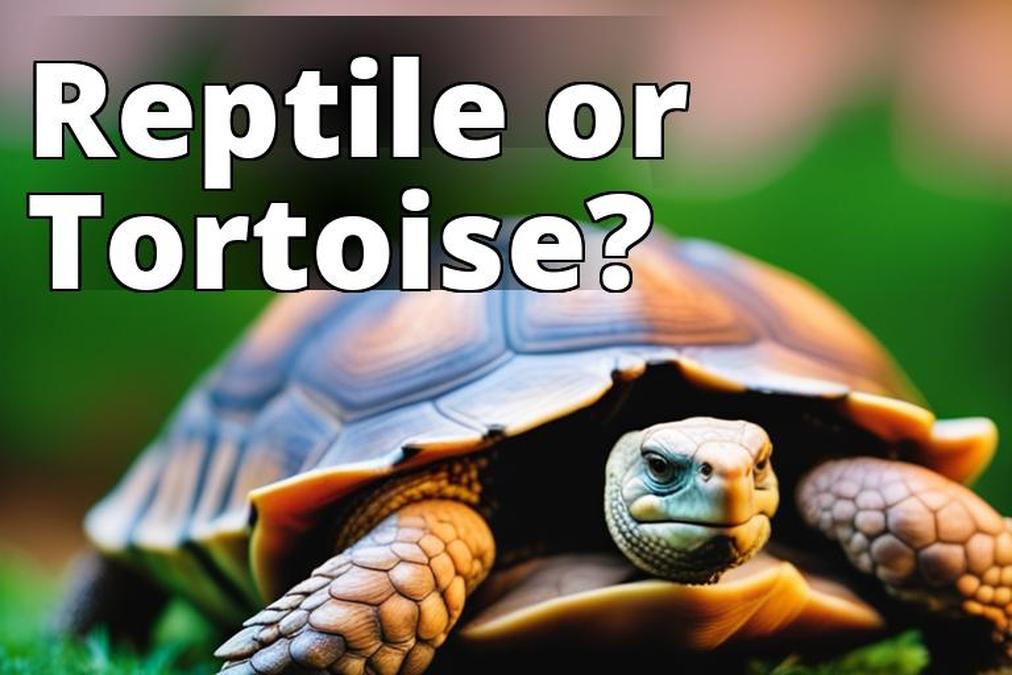So you want to know can tortoises eat cucumber? Tortoises are fascinating creatures with unique dietary needs. If you’re a tortoise owner, you may be wondering if cucumbers are a safe and suitable addition to your pet’s diet. In this article, we’ll explore whether tortoises can eat cucumber, how it fits into their overall diet, and what other foods are essential for their health and well-being.
When it comes to feeding tortoises, cucumber can indeed be included in their diet. However, it’s important to offer it in moderation. Cucumber has a high water content, making it a great hydrating option for your tortoise, but it lacks the essential nutrients they need in larger quantities. Therefore, it should not be the main component of their diet.
Key Takeaways:
- While tortoises can eat cucumber, it should only be given in moderation.
- Cucumber can provide hydration for tortoises due to its high water content.
- It’s important to offer a balanced diet that includes a variety of other vegetables and leafy greens.
- Cucumber should not be the main component of a tortoise’s diet as it lacks essential nutrients.
- Ensure proper nutrition for your tortoise by offering a variety of safe and healthy foods.
What Do Tortoises Eat in the Wild?
Tortoises have a diverse diet in their natural habitat, consisting of various plant materials and occasionally small animals. In the wild, they primarily graze on leaves, grasses, fungi, and different types of vegetables. This allows them to obtain the necessary nutrients for their diet. Their grazing behavior involves spending hours searching for and consuming different types of plant matter to meet their nutritional needs.
It is important to note that tortoises also consume small animals, such as insects and worms, as a source of protein. This helps supplement their diet and ensures they receive the necessary nutrients. In the wild, tortoises have access to a wide range of plants and insects, allowing them to maintain a balanced diet and thrive in their natural environment.
“In their natural habitat, tortoises have evolved to consume a variety of plant materials, grazing on the available vegetation. This ensures that they receive the necessary nutrients for their growth and overall health.” – Dr. Sarah Johnson, Herpetologist
Tortoise Natural Diet:
- Leaves
- Grasses
- Fungi
- Various vegetables
- Insects (occasionally)
By observing the natural diet of tortoises, we can understand the importance of providing a similar variety of plant materials in their captive diets. This means offering a diverse range of dark, leafy greens, including options such as collard greens, kale, and turnip greens. These vegetables provide essential vitamins and minerals for the tortoises’ health and wellbeing.
Additionally, it is crucial to avoid feeding tortoises toxic plants, such as rhubarb, potato, and avocado. These can be harmful to their digestive system and overall health. Providing a safe and balanced diet based on their natural food types is essential for the proper care and nutrition of pet tortoises.
| Tortoise Natural Diet | Additional Food Sources |
|---|---|
| Leaves | Dark, leafy greens (collard greens, kale, turnip greens) |
| Grasses | Timothy hay, Bermuda grass |
| Fungi | – |
| Various vegetables | Carrots, zucchini, cucumber |
| Insects (occasionally) | Mealworms, earthworms |
While replicating the exact diet of wild tortoises can be challenging, providing a variety of safe vegetables and leafy greens can help meet their dietary needs in captivity. It is important to consult with a veterinarian specializing in reptile care for specific feeding guidelines and to ensure the overall health and wellbeing of pet tortoises.

Safe and Healthy Foods for Pet Tortoises
When it comes to feeding your pet tortoise, providing a balanced and nutritious diet is crucial for their overall health and well-being. Dark, leafy greens should make up the majority of their diet, as these vegetables are rich in essential vitamins and minerals. Some safe and healthy options include:
- Collard greens: High in calcium and vitamin A, collard greens are a great addition to your tortoise’s diet.
- Kale: Another nutritious leafy green, kale provides ample amounts of vitamins C and K.
- Turnip greens: These greens are packed with antioxidants and are a good source of fiber.
- Carrots: Rich in beta-carotene, carrots are a tasty and nutritious treat for your tortoise.
- Zucchini: A hydrating vegetable that is low in calories, zucchini can be included in your tortoise’s diet.
It is important to avoid feeding your tortoise foods that are toxic to them. Some examples of foods that should be avoided include rhubarb, potato, and avocado. These foods can be harmful to tortoises and should never be included in their diet.
By offering a variety of safe vegetables, your pet tortoise can receive the necessary vitamins, minerals, and fiber for optimal health. Remember to introduce new foods gradually and monitor your tortoise’s response to ensure they are tolerating them well. Consulting with a veterinarian who specializes in reptile care can also provide valuable guidance on creating a nutritious diet plan for your pet tortoise.
| Foods to Include in Your Tortoise’s Diet | Foods to Avoid |
|---|---|
| Collard greens | Rhubarb |
| Kale | Potato |
| Turnip greens | Avocado |
| Carrots | |
| Zucchini |
Commercial Tortoise Diets and Supplements
When it comes to providing a balanced and nutritious diet for your pet tortoise, commercial tortoise diets and supplements can play a crucial role. These specially formulated products are designed to meet the nutritional needs of tortoises, ensuring they receive the necessary vitamins and minerals for optimal health. Here are some popular options:
| Tortoise Diet | Description |
|---|---|
| Mazuri Tortoise Diet | A complete and balanced diet that combines high-fiber ingredients with essential nutrients. |
| Exo Terra Tortoise Adult | A pellet-based diet enriched with vitamins, minerals, and trace elements to support tortoise health. |
| Rep-Cal Tortoise Food | A calcium-rich diet that promotes healthy shell growth and overall well-being in tortoises. |
These commercial tortoise diets can be a convenient option for tortoise owners, as they provide a well-rounded nutrition profile. However, it is important to note that they should not be the sole source of food for your pet. Supplementing their diet with fresh vegetables and leafy greens is still necessary to ensure a varied and balanced nutritional intake.
In addition to commercial tortoise diets, there are also supplements available that can help enhance the health of your pet tortoise. These supplements may contain essential vitamins, minerals, and other beneficial additives that can support their overall well-being. It is advisable to consult with a veterinarian to determine the appropriate supplementation for your specific tortoise species and individual needs.
Overall, commercial tortoise diets and supplements can be valuable tools in providing a well-rounded and nutritious diet for your pet tortoise. However, it is essential to remember that they should be used in conjunction with fresh vegetables and leafy greens to ensure optimal health and nutrition for your beloved reptile companion.
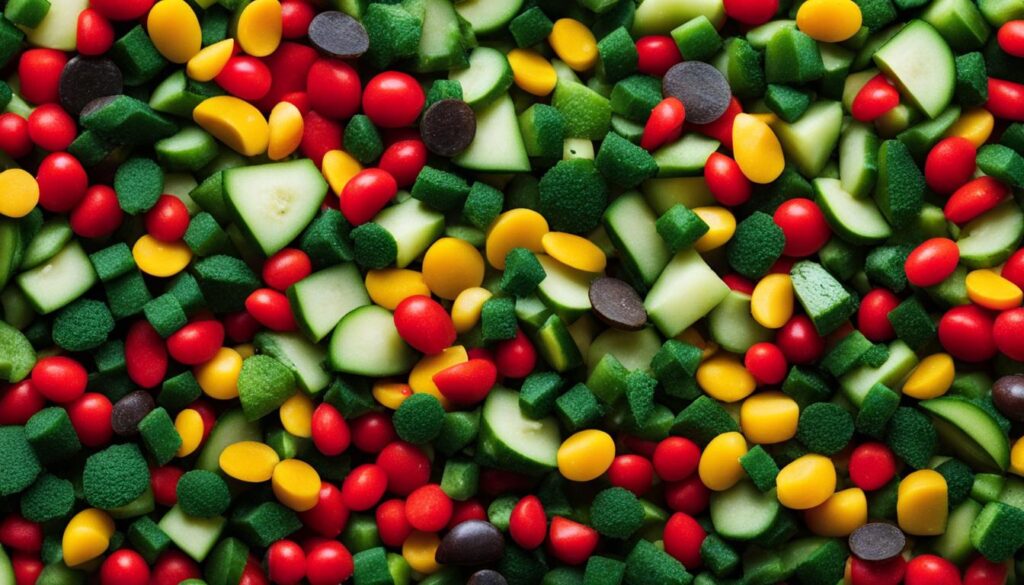
Feeding Guidelines and Care for Pet Tortoises
Feeding pet tortoises requires careful consideration of their size, age, and nutritional needs. Understanding how much tortoises should eat and providing appropriate care is crucial for their overall health and wellbeing.
Diet Quantity
The amount of food a tortoise should consume varies based on its size and age. Juvenile tortoises should have enough food to cover the entire surface area of their shells, ensuring they receive the necessary nutrients for growth and development. As tortoises mature into adults, their food intake should be adjusted. Adult tortoises typically require an amount of food that they can consume within 15-20 minutes. Monitoring their food intake is essential to prevent overfeeding and potential obesity.
Caring for Pet Tortoises
In addition to monitoring their diet, caring for pet tortoises involves ensuring they have access to clean drinking water at all times. Providing regular baths can help keep them hydrated, as they absorb water through their skin during these sessions. It is important to maintain a clean and suitable habitat for tortoises, including appropriate bedding, temperature, and lighting conditions. Regular visits to a veterinarian specializing in reptiles can help ensure their overall health and detect any potential issues early on.
Summary
Feeding guidelines and proper care are essential for maintaining the health of pet tortoises. Monitoring their food intake and adjusting the portion size based on their age and size is crucial to prevent overfeeding and obesity. Alongside a balanced diet, access to clean water and a suitable habitat contribute to the overall wellbeing of these unique reptiles.
Conclusion
In conclusion, when considering the tortoise diet, it is safe to feed them cucumber in moderation. While cucumber can provide hydration due to its high water content, it should not be the primary component of their diet. Tortoises require a diverse range of vegetables and leafy greens to ensure they receive the necessary nutrients for their health and wellbeing.
It is important to offer a balanced diet that includes dark, leafy greens such as collard greens, kale, and turnip greens. Additionally, other safe vegetables like carrots, zucchini, and cucumber can be included as part of their nutrition. However, it is crucial to avoid feeding them toxic foods like rhubarb, potato, and avocado.
Supplementing their diet with commercial tortoise diets, such as Mazuri Tortoise Diet or Exo Terra Tortoise Adult, can help ensure they receive the essential vitamins and minerals they need. Consulting with a veterinarian is advised to determine the appropriate feeding guidelines and ensure the right balance of nutrients for your pet tortoise.
By following proper care guidelines, monitoring their food intake, and providing access to clean drinking water, you can maintain the health and wellbeing of your pet tortoise. Remember, a varied and balanced diet is key to keeping your tortoise happy and healthy.
FAQ
Can tortoises eat cucumber?
Yes, tortoises can eat cucumber as part of their diet, but it should only be given in moderation. Cucumber is safe for tortoises to consume and can provide hydration due to its high water content. However, it should not be the main component of their diet as it lacks essential nutrients.
What do tortoises eat in the wild?
In the wild, tortoises primarily eat leaves, grasses, fungi, and various vegetables. They graze for hours, consuming different types of plant matter. They also occasionally eat small animals as a source of protein. Tortoises in the wild have access to a variety of plants and insects, allowing them to obtain the necessary nutrients for their diet.
What are safe and healthy foods for pet tortoises?
Dark, leafy greens should make up the majority of a pet tortoise’s diet, including options like collard greens, kale, and turnip greens. Other vegetables such as carrots, zucchini, and cucumber can also be included in their diet. It is important to avoid feeding tortoises foods that are toxic to them, such as rhubarb, potato, and avocado.
Are there commercial tortoise diets and supplements available?
Yes, there are commercial diets available for pet tortoises that provide a balanced nutrition. Some examples include Mazuri Tortoise Diet, Exo Terra Tortoise Adult, and Rep-Cal Tortoise Food. These diets are formulated to meet the nutritional needs of tortoises, providing them with essential vitamins and minerals.
What are the feeding guidelines and care for pet tortoises?
The amount of food a tortoise should eat depends on its size and age. Juvenile tortoises should be given enough food to cover the entire surface area of their shells, while adult tortoises should have the amount of food they can consume in 15-20 minutes. It is important to monitor their food intake to avoid overfeeding and obesity. Tortoises should also have access to clean drinking water at all times, and regular baths can help keep them hydrated.
